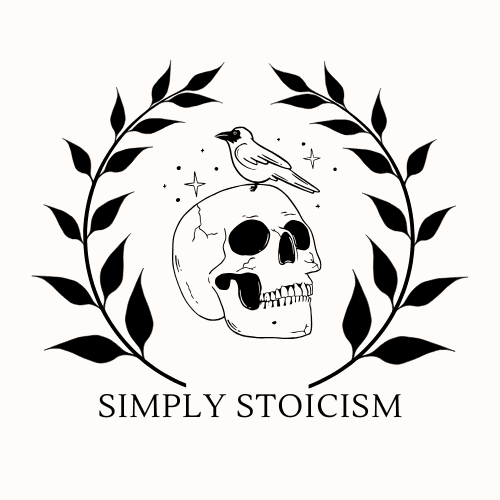What Seneca's Letters Can Teach Us About Surviving Modern-Day Burnout
Discover how Seneca's ancient wisdom offers surprisingly practical solutions for modern burnout. Learn evidence-based strategies to reclaim your time, energy, and purpose at work

Jon High
·
Jan 9, 2025
It wasn't the missed deadlines or the 3 AM emails that finally broke me. It was a Tuesday morning when I found myself sitting in my car in the office parking garage, staring at my laptop bag in the passenger seat, physically unable to make myself walk into another 12-hour day of back-to-back meetings.
My podcast queue was filled with productivity tips. My desk drawer was stuffed with half-finished journals promising to "transform my relationship with time." My phone buzzed constantly with Slack notifications from three different time zones. By every external metric, I was succeeding – senior product manager at 25, leading a team of fifteen, rolling out features that made the executives happy.
And yet there I sat, watching other employees stride purposefully past my car, wondering how they made it look so easy.
That evening, instead of diving into my usual stack of unread emails, I found myself in a dusty corner of a local bookstore, seeking answers in the place I always defaulted when things got rough – the ancient philosophy section. As I opened Seneca's Letters from a Stoic, the words of a Roman philosopher who died nearly 2,000 years ago hit with unexpected force:
"It is not that we have a short time to live, but that we waste a lot of it. Life is long enough, and a sufficiently generous amount has been given to us for the highest achievements if it were all well invested."
I almost laughed out loud. Here I was, in 2019, burning myself out in pursuit of "highest achievements," while this ancient Roman was calling out exactly how I'd lost my way.
The parallels between Seneca's time and ours are startling. While he didn't have Slack messages or calendar invites, he understood the unique pressures of balancing ambition with wellbeing. As an advisor to Emperor Nero, manager of vast wealth, and public intellectual, he navigated the kind of high-stakes professional environment that many of us face today.
And the numbers suggest we need his wisdom more than ever. According to the 2023 State of the Global Workplace report by Gallup, we're in the midst of a burnout epidemic. Nearly 60% of US workers report experiencing burnout in their current jobs, with stress levels reaching record highs across industries. The World Health Organization now officially recognizes burnout as an "occupational phenomenon," characterized by exhaustion, cynicism, and reduced professional efficacy.
But here's what's fascinating: when you read Seneca's letters, you realize that while our technology has evolved dramatically, the fundamental human struggles with work, purpose, and meaning remain remarkably consistent. And so might the solutions.
The Ancient Roots of Modern Exhaustion
The day I found myself paralyzed in that parking garage, I wasn't just experiencing personal weakness – I was living out a pattern that Seneca had observed in Rome's ambitious professional class. While we think of burnout as a modern affliction, the symptoms he described in his letters could have been pulled from today's mental health journals.
In Letter 28, he writes to a friend who has been traveling restlessly from city to city, seeking to escape his mental burdens:
"Do you think that you alone have had this experience? Are you surprised, as if it were a novelty, that after such long travel and so many changes of scene you have not been able to shake off the gloom and heaviness of your mind?"
Replace "travel" with "job-hopping" or "career pivots," and he could be writing to any of us who have changed roles or companies, only to find the same feelings of overwhelm following us to each new desk.
Seneca's Three Core Insights for Preventing Burnout
1. The Trap of "Busy-ness"
Last year, my company introduced "Focus Fridays" – no meetings allowed. Within a month, people were scheduling "focus time syncs" and "async collaboration check-ins." We had turned even our designated quiet time into another form of busy-ness.
Seneca saw this same pattern in ancient Rome. In Letter 3, he observes: "It is not the man who has too little, but the man who craves more, that is poor." He wasn't just talking about material wealth, but about our relationship with time and attention.
The science backs up his observation. A 2023 study from UC Berkeley's Human Performance Lab found that knowledge workers are interrupted every 6 minutes on average, with each interruption requiring 23 minutes to fully regain focus. Researchers estimated this costs organizations up to $588 billion annually in lost productivity. But the greater cost is to our mental wellbeing.
Practical Modern Application:
Implement what I call "Seneca Blocks" – 90-minute periods of genuine deep work where you're completely unreachable
Create a "distraction log" to track what pulls you out of focus (you'll be surprised by the patterns)
Reframe "productivity" around depth rather than quantity of tasks completed
Schedule buffer time between tasks (what Seneca called "room to breathe")
Real-World Example: Sarah Chen, CTO of a San Francisco startup, implemented a modified version of this approach with her engineering team. "We were drowning in 'quick syncs' and 'brief check-ins,'" she explains. "So we created what we call 'Deep Work Wednesdays.' The whole engineering team goes offline except for true emergencies. Our bug resolution rate actually improved by 46% despite working fewer total hours."
2. The Importance of Real Rest
The most dangerous professional habit I developed wasn't overworking – it was misunderstanding rest. I'd spend my evenings half-working: checking emails while watching Netflix, scrolling through work Slack channels during dinner, keeping my laptop by my bed "just in case."
Seneca identified this exact pattern in Letter 56, where he discusses the difference between genuine peace of mind and mere distraction:
"The mind must be given relaxation - it will rise improved and sharper after a good break. Just as rich fields must not be forced - as uninterrupted crop production will soon exhaust them - so constant effort will break the power of the mind."
Modern neuroscience has caught up to Seneca's intuition. Dr. Matthew Walker's sleep laboratory at UC Berkeley found that even having your phone visible while resting reduces the quality of cognitive recovery by 51%. Meanwhile, a 2023 study in Nature Neuroscience revealed that periods of true mental rest are crucial for consolidating new skills and insights – exactly what Seneca suggested.
Practical Modern Application:
Create physical distance from work tools during rest periods
Design a "rest ritual" that marks the transition from work to recovery
Practice what psychologists call "active rest" – engaging activities that don't strain your professional mental muscles
Identify your personal "minimum effective dose" of rest
Real-World Example: Miguel Torres, a management consultant in Chicago, transformed his team's performance by implementing what he calls "Seneca Sundays." "We were all 'available if needed' on weekends, which meant nobody ever truly recharged," he explains. "Now we have a strict no-work Sunday policy. Monday productivity increased by 34%, and our client satisfaction scores actually improved."
3. The Power of Purpose Over Position
The moment that truly shifted my perspective came during a late-night review of my five-year career plan. Every goal was about position: senior director by 35, VP by 38, C-suite by 42. Nothing about impact, purpose, or the kind of leader I wanted to become.
Seneca addresses this mindset directly in Letter 22: "No person has the power to have everything they want, but it is in their power not to want what they don't have, and to cheerfully put to good use what they do have."
This isn't about lowering ambitions – it's about grounding them in meaning. Recent research published in Harvard Business Review shows that employees who find meaning and purpose in their work report significantly higher job satisfaction and lower rates of burnout compared to those focused solely on advancement.
Practical Modern Application:
Create a "purpose audit" for your current role
Identify three non-promotional ways to increase your impact
Develop what psychologists call "craft orientation" – focusing on mastery over advancement
Build a "purpose portfolio" that balances career aims with personal values
Real-World Example: Elena Martinez, a software engineer in Seattle, reversed her burnout by redefining her role's purpose. "I was obsessed with becoming a team lead," she shares. "Instead, I started mentoring junior developers and contributing to our company's education initiatives. I still got promoted, but it came naturally from adding real value, not from burning myself out chasing a title."
Modern Implementation Framework
The key to applying Seneca's wisdom lies in systematic but flexible implementation. Here's a framework I developed through trial and error:
1. Morning Alignment (10-15 minutes)
Review your purpose statement (not your to-do list)
Identify one meaningful contribution you want to make today
Set boundaries for your energy, not just your time
2. Workday Structure
For Office Workers:
Use 90-minute deep work blocks
Take full lunch breaks away from your desk
Schedule "buffer blocks" between meetings
For Remote Workers:
Create physical transitions between work modes
Use virtual "do not disturb" signals
Maintain strict start/end times
For Managers:
Model healthy work patterns for your team
Create team-wide focus periods
Normalize rest and recovery
3. Evening Integration
Complete a 5-minute "meaningful moment" reflection
Practice physical and digital detachment
Prepare for genuine rest
When Burnout Has Already Set In
Three months after my parking garage moment, I had a similar morning – but this time was different. The exhaustion was still there, but instead of paralysis, I had a framework for moving forward. Here's what I learned about recovering from active burnout:
Seneca offers this profound comfort in Letter 71: "Sometimes even to live is an act of courage." When you're in the depths of burnout, even basic functioning can feel overwhelming. The goal isn't to immediately transform everything, but to begin making small, meaningful changes.
Immediate Recovery Steps:
Acknowledge Without Judgment
Document your current state without self-criticism
Identify your primary energy drains
Note which activities still energize you, even slightly
Create Micro-Boundaries
Start with just one 30-minute protected period daily
Choose one work ritual to modify (like checking email first thing)
Identify one regular commitment you can renegotiate
Real-World Example: James Chen, a product manager in Austin, started his recovery with a single boundary: no phone in the bedroom. "It seemed too small to matter," he says, "but it created a ripple effect. Better sleep led to clearer thinking, which led to better decisions about my time and energy."
The Bigger Picture: Sustainable Success
Seneca's ultimate message about burnout isn't just about managing symptoms – it's about fundamentally reconsidering our relationship with work, time, and meaning. As he writes in Letter 49:
"The greatest obstacle to living is expectancy, which hangs upon tomorrow and loses today... The whole future lies in uncertainty: live immediately."
Recent research from the McKinsey Global Institute suggests that by 2025, 85% of jobs that will exist haven't been invented yet. In this context, burning out for a specific position or title becomes even more questionable. Instead, developing sustainable practices that support long-term growth and adaptability is crucial.
Key Principles for Sustainable Success:
Build recovery into your daily routine, not just weekends
Measure growth through impact, not hours worked
Create support systems before you need them
Practice preemptive rest rather than reactive recovery
Moving Forward: Your Next Steps
As I implemented these lessons from Seneca, my own relationship with work began to shift. The change wasn't immediate or linear – ancient wisdom doesn't translate perfectly to modern life. But the core principles remain surprisingly relevant.
Start Here:
Choose one principle from this article that resonates most
Implement it in its smallest possible form for one week
Document what changes, however subtle
Build from there
Remember Seneca's words from Letter 16: "Philosophy teaches us to act, not to speak... to make our words and actions harmonize, to be equal to ourselves under all conditions."
In our modern context, this might be the most radical act of all: choosing to work and live in a way that's sustainable, meaningful, and true to our deepest values.
A Final Note
The next time you feel the creeping edges of burnout – whether sitting in your car like I was, or catching yourself checking emails at 2 AM – remember that this struggle isn't new. The solutions that helped people navigate it thousands of years ago might just be what we need today.
Start small. Stay consistent. Trust the process. And remember that even Seneca, one of history's greatest productivity philosophers, had to remind himself regularly of these truths. We're all works in progress, learning to balance ambition with wellbeing, one day at a time.



